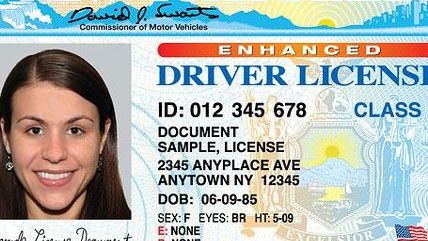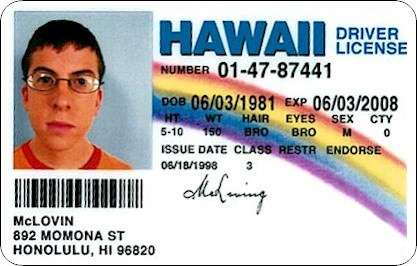Booze Laws Fuel Escalating Fake ID Arms Race


The other day, as noted at Reason 24/7, the BBC ran a suitably amused story about the vast fake identification industry that has resulted from America's weird and restrictive alcohol laws. According to the Beeb, New York is implementing some new generation of "unforgeable" drivers license technology that, officials claim, will finally put an end to this horrible business of 18-year-olds buying beer. Since most people around the world don't consider alcohol consumption by 18-year-olds to be a bad thing at all, the restrictive booze laws, and the ensuing identification technology arms race, are good spectator sport for the BBC's audience.
From the BBC:
New York state has unveiled new driving licences engraved with a "ghost image" that floats in a transparent window and, officials proclaim, is virtually impossible to tamper with or forge.
Similar cards have been issued in Virginia since 2009, and if they prove a success the other 48 states could follow suit. Given that it is virtually impossible to purchase alcohol in the US without being asked for ID, this would make it much harder to convince bar staff or grocery store staff that an under-age purchaser is over 21.
But the sheer prevalence of bogus identity cards like that carried by Madison suggests that efforts to circumvent the authorities' latest tactics are inevitable.
All the evidence suggests that acquiring phony identification is commonplace among huge swaths of otherwise law-abiding young American adults - especially those who have left home for the first time to study at university.
A 2007 University of Missouri study of Midwestern undergraduates found that some 32% of those surveyed owned a fake ID by the end of their second year.
There are reasons other than buying booze that fuel a market for fake ID, of course. Identity theft drives some small demand for documents, the restrictive immigration laws of recent years have also created a market for fake ID, and some people have always wanted the ability to duck into a new life. ID security advocates always raise terrorism as an issue, too, and there's likely some market for fake identification among the sort of terrorists who don't rely entirely on explosive underwear. But the vast industry producing fake drivers licenses was created almost entirely to satisfy the desire for young American adults to be able to purchase booze in bars and liquor stores.
And it is a vast industry. Just last year, the U.S. media ran surprised stories about how what was once dorm-based craft forgery had transformed into a sophisticated international business that advertises its wares through professional Web sites. But the powers that be don't seem to have realized what they've created by escalating the game. When Owen McShane, director of investigations for the New York Department of Motor Vehicles, boasts to the New York Times of how much it costs to make the new licenses, he's forgetting that the black market of his memory has transformed.
"It's hundreds and hundreds of thousands of dollars for an inscriber," Mr. McShane said, referring to the engraving machine. "It's not something a college student is going to be able to go out and get."
He's right. I couldn't have done that back in the day. But a printing company in China that does a wide range of business in addition to producing fake American drivers licenses may already own one of the things. As USA Today put it last year:
Most troubling to authorities is the sophistication of the forgeries: Digital holograms are replicated, PVC plastic identical to that found in credit cards is used, and ink appearing only under ultraviolet light is stamped onto the cards.
Each of those manufacturing methods helps the IDs defeat security measures aimed at identifying forged documents.
With restrictive alcohol laws that create huge demand for fake identification, American government has spawned a lucrative, world-wide industry that is almost certainly capable of meeting any challenge thrown its way. And, of course, the products of that industry can be used in any number of ways that should worry officials much more than the evasion of alcohol laws. Restrictions and prohibitions undermine themselves, every time, and create a whole new flock of headaches.
